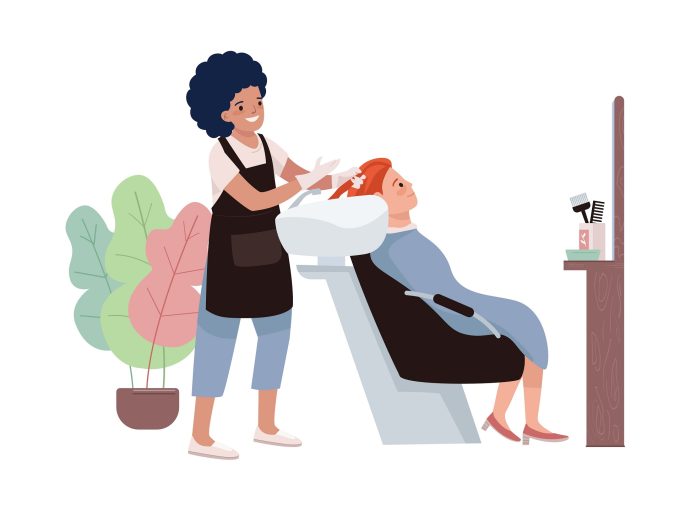
Researchers at the University of Manchester have discovered a surprising connection between how cells respond to stress and restricted healthy hair growth.
The Manchester Hair Research Group made this unexpected finding while testing a drug to see if it could promote hair growth in human scalp hair follicles in a lab dish.
Their study, published in PLOS ONE, has potential implications for treating hair loss.
The link involves the Integrated Stress Response (ISR), an ancient biological mechanism that helps cells cope with stressful conditions. This response is found across many forms of life, from yeast to humans.
The ISR is activated in situations such as poor nutrient availability, viral infections, or the buildup of misshapen proteins in cells. When triggered, the ISR slows down the production of new proteins, allowing cells to enter a partial stasis to adapt and deal with the stress. If the ISR fails, it can lead to cell death.
The ISR is already a focus of research in areas like cancer, neurodegenerative disorders, and aging. However, its connection to hair growth was previously unknown.
Dr. Talveen Purba, a Research Fellow at The University of Manchester and senior author of the study, explained, “We were testing a drug that targets metabolism in human hair follicles to influence how cells generate energy. We expected it to stimulate stem cells and promote hair growth. Instead, we found that hair growth was blocked, as cells, including stem cells, quickly stopped dividing.”
The researchers also noticed that mitochondria, the cell’s energy powerhouses, were dysfunctional, and there were disruptions in how cells communicated with each other. Using various experimental techniques, they identified that ISR activation was responsible for these effects.
Derek Pye, chief technician of the research group and co-author of the study, remarked, “When we look at hair follicles under the microscope, it’s striking how consistent the response is between hair follicles from different people.”
Following this initial research, the team is now investigating the broader implications of the ISR in hair follicles and examining its activity in people with hair loss conditions.
Dr. Purba added, “We’re incredibly hopeful as we believe the activation of this pathway could play an important biological role in restricting hair growth in people with hair loss conditions. Targeting this pathway could lead to new treatments.”
This groundbreaking discovery offers a new perspective on hair growth and loss, with the potential to develop novel treatments for those suffering from hair loss conditions.
If you care about health, please read studies that herbal supplements could harm your heart rhythm, and how eating eggs can help reduce heart disease risk.
For more health information, please see recent studies that apple juice could benefit your heart health, and results showing yogurt may help lower the death risks in heart disease.



